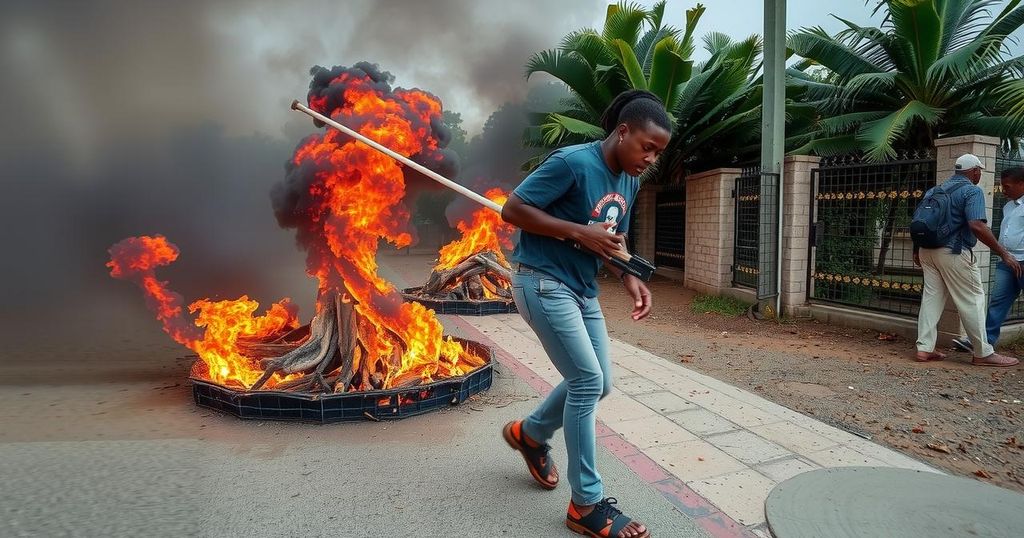Mozambique is facing severe unrest following a disputed presidential election, resulting in over 250 deaths since October. Violence has escalated since the ruling party’s election victory was upheld by the top court, prompting protests and civil disobedience led by opposition leaders who claim electoral fraud. The unrest has broad implications for regional stability and security.
Mozambique is experiencing unprecedented civil unrest following the presidential election held in October, which has resulted in significant violence and loss of life across the nation. The situation escalated after the nation’s top court upheld a contested election result favoring the ruling party, Frelimo. Since the court’s decision on December 23, reports indicate that at least 125 individuals have died due to clashes between protesters and security forces. Cumulatively, since the election, the death toll exceeds 250, with protests intensifying as citizens decry alleged election fraud.
The unrest has manifested itself in various forms, including widespread protests, roadblocks created by locals, arson, and looting. In a call to action, the principal opposition candidate has proclaimed himself the legitimate winner of the election and urged citizens to undertake a national shutdown. The atmosphere has grown increasingly volatile, with human rights activists highlighting the situation as indicative of widespread social unrest rather than mere protests.
The recent upheaval in Mozambique is alarming, particularly as it marks the worst election-related violence the country has witnessed since the conclusion of its civil war over three decades ago. The historical context is essential to understanding the significance of this unrest; Mozambique has a deeply entrenched political structure largely dominated by the Frelimo party, the ruling party since independence. The legitimacy of elections in Mozambique has frequently been contested, leading to heightened tensions at critical periods, such as in the aftermath of electoral results, which often provoke reactions from opposition parties and civil society.
In summary, the ongoing violence and social unrest in Mozambique highlight critical issues surrounding political legitimacy and public dissent. The toll of this unrest is significant, with over 250 individuals reportedly having lost their lives since the October elections. The situation remains tense as opposition forces and civil society grapple with the ruling party’s control, and the call for national resistance may further escalate these conflicts. Mozambique’s stability is crucial not only for its citizens but also for the broader southern African region, necessitating urgent attention and resolution.
Original Source: www.nytimes.com






